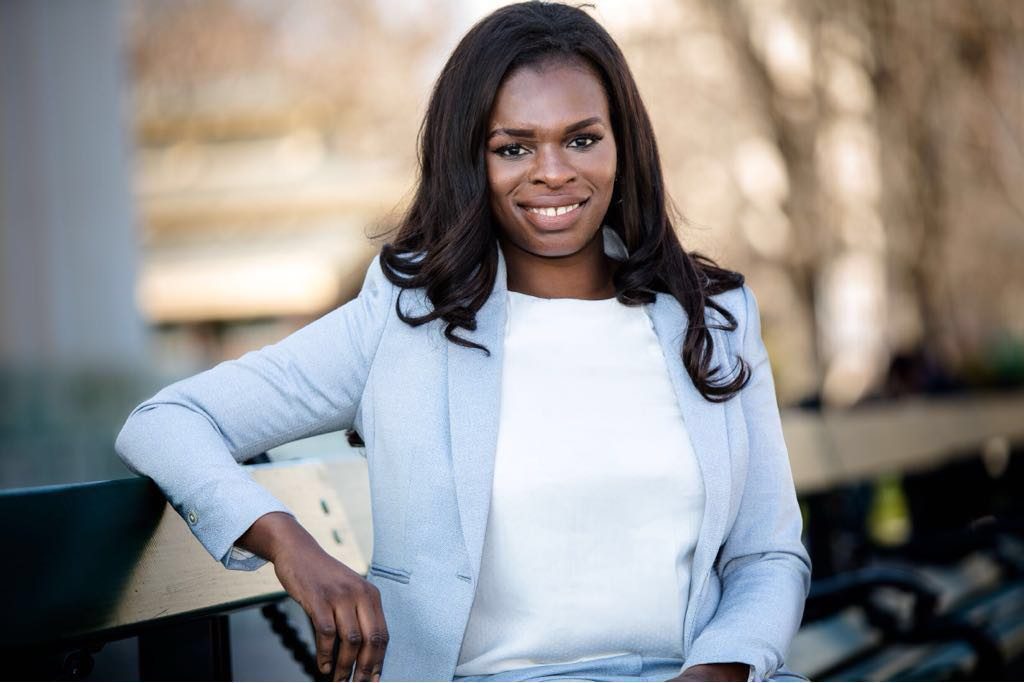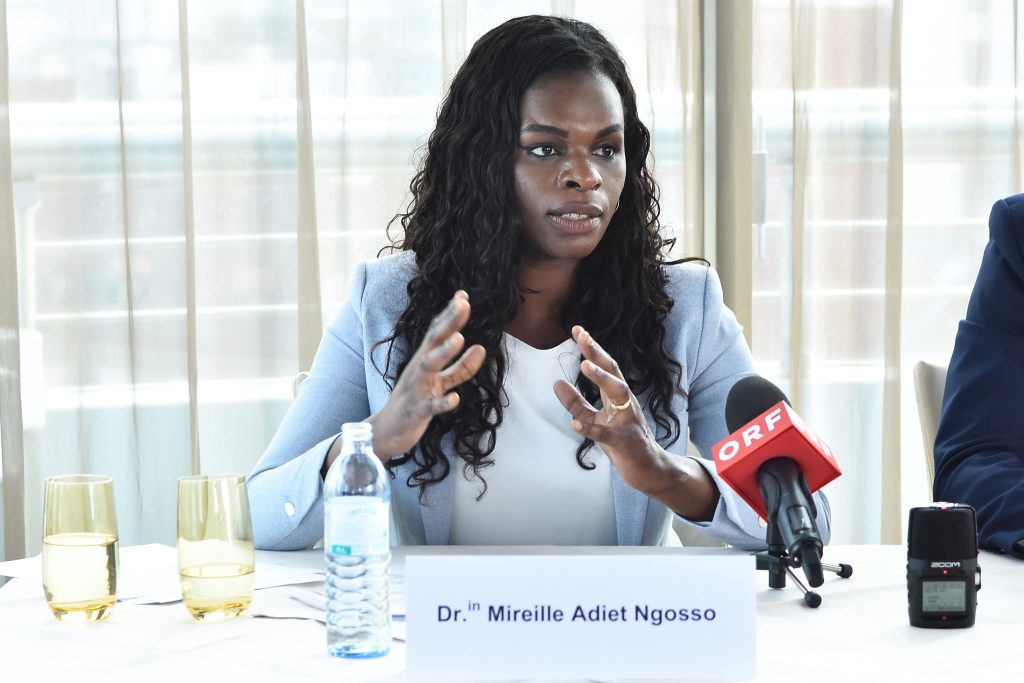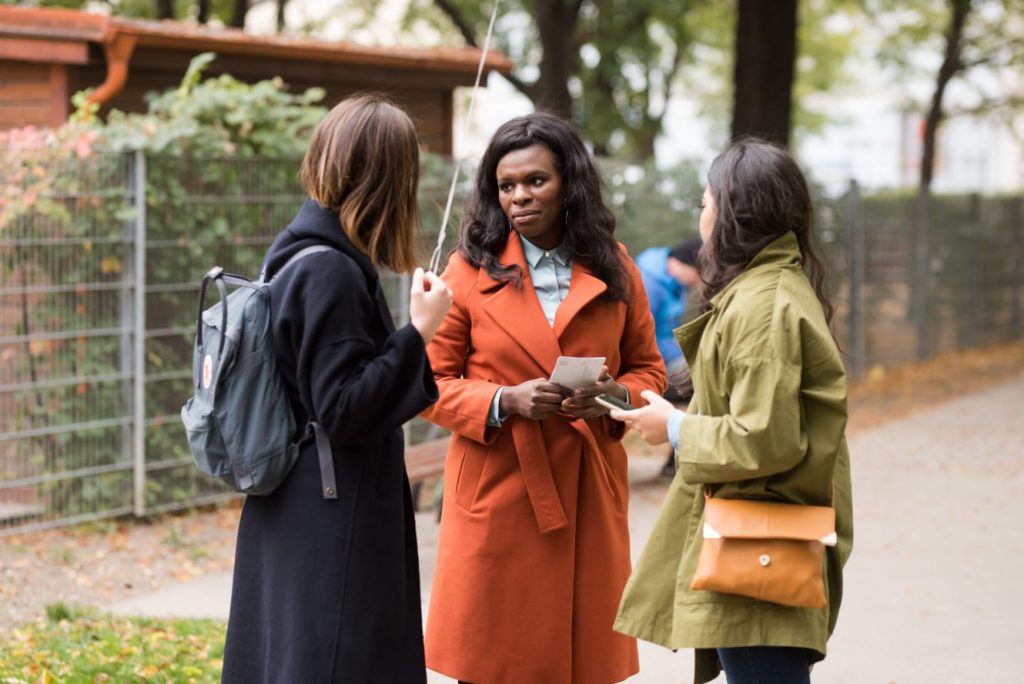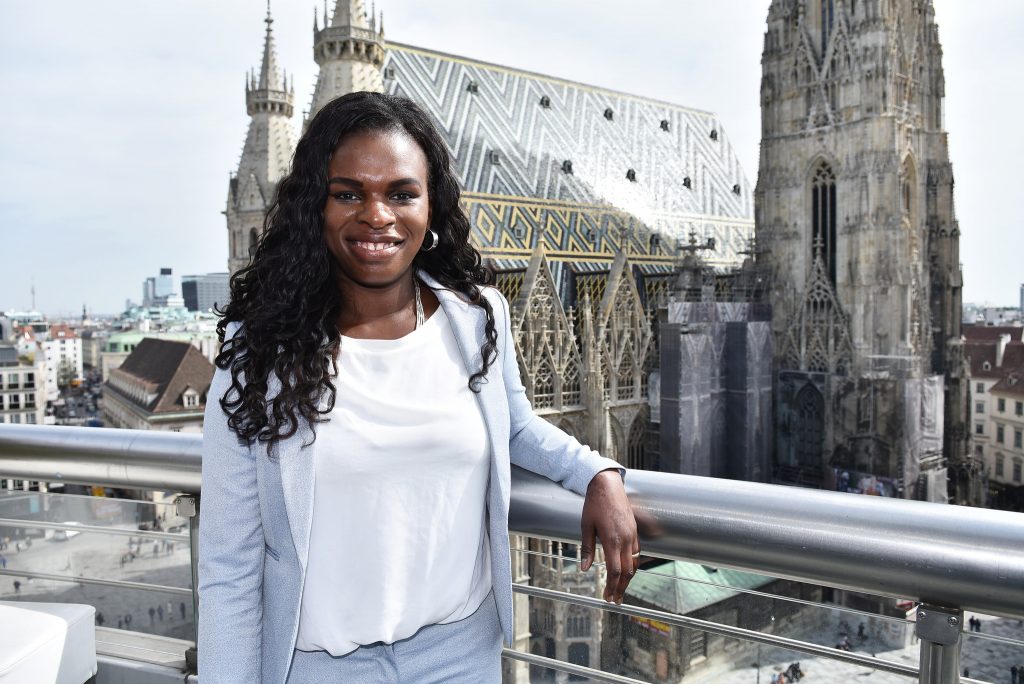
She is the first black woman to be the representative of the SPÖ Party in the very select first district of Vienna. Her name is Mireille Ngosso, she was born in Congo and moved with her parents to Vienna only aged of three. I am extremely glad to introduce to a committed woman who dared to break the codes.
Who are you? Can you introduce yourself to our readers?
Hello, my name is Mireille Ngosso and I’m a 39 years old mother; I am a doctor, and occupy since last June the function of Deputy Chairman of the Social Democratic Party for the first district of Vienna as well.
What are the three adjectives that describe you the best?
Assertive, cheerful and sociable.

What is the meaning of power for you?
That is an interesting question, because « power » has many aspects. For me there is two main types of power: One where self-interest is the most important thing, and one which is democratic and inclusive, where common interest is essential.
It can mean being able to carry out the ideas, values, and the different approaches that one stands for. When it is the case, and everything is done in a democratic way, the outcome can be positive. What I mean with « democratic » in this case is the fact of accepting different opinions, hearing people out, and implementing ideas that are positive for the community, the society or the State. On the other hand, power can also be misused, exploited. Being in a position of power makes it easier to use and oppress people. Such a negative balance of power is not only to be found in politics, it affects also interpersonal relationships.
How does it manifest concretely in your political and private daily life?
Power? Well power is of course omnipresent in politics: politicians are basically elected to make decisions for the others. Personally I find extremely important to speak with district inhabitants, small business owners, and with the workers and employees working in the 1st district, and then make decisions accordingly.
For instance, regarding the ban on smoking in bars and restaurants issue, it was crucial for me to know the opinions of the waiters and waitresses. There is a lot of venues in the 1st district and a lot of people work in gastronomy. It would be wrong not to take their points of view into consideration when deciding if smoking is allowed or not.
I also think that some politicians don’t take enough actions; the reason being that self-interest and pleasing their own electorate are put in a prominent position. It is a very dangerous game; not only undemocratic towards everyone in Austria, it also constitutes an abuse of power.
I make sure to leave space for open discussions, at events like the « Mireille Day », or for instance online on my Facebook page. I want to know what changes the citizens would like me to implement, because it is my duty as their representative.

In my personal life I wouldn’t say that power ever played an important role, except maybe earlier during school, when i had to try three times harder than the others because I was a black woman.
What do you stand for as Deputy Chairman of the Social Democratic Party of Austria for the « Innere Stadt »?
The 1st district of Vienna stands for internationality, openness and tolerance, and I would like to encourage such a cosmopolitan outlook, so that each and every one of us can feel at home in Vienna. We are all Viennese, no matter the color of our skin, our religion or our origins, and I want to get the word out there, no division can be created among us in Vienna.

What does it mean to be a black woman in politics, especially in Austria?
Of course I am constantly confronted to racism, but in the end what matters is being able to be a good example for others, especially in the communities. I realized what an important hole I hold for them and how they perceive me. Many got in touch with me to let me know that their children or themselves saw me as a role model.
I feel honored and nervous at the same time. So many people look up to me and have big expectations from me. It makes me proud and I hope to be able to match these expectations, even though it is obvious that I can’t fulfill all of them, which is ok.
Do you think power to be different for women than it is for men?
Yes I do. We leave in a patriarchy, and the very definition of this term involves an unequal balance of power: patriarchy means rule of the fathers. It implies from the start a male dominance over us, from our superiors, from the men leading in politics and economy, from our husbands, our brothers etc…
It is often said that women in politics have to make a lot of sacrifices, is that true?
I only speak for myself here but yes it is definitely a challenge, to reconcile my profession as a doctor with my family, my son and my work in politics. Thankfully I have a very good support system; my husband, my mother and my entire family are a huge help. I don’t see how I would manage all of this on my own.
The situation changed a little over the past centuries, but a lot stayed the same, and for me our society are still far from gender equality, and I’m not the only one to think so ( almost 500,000 Austrian women signed the referendum ).

How do you combine your work as a surgeon and your political career?
As a doctor I don’t only know the field, but also how the health care system works. How we handle health policies is crucial, and that’s why I do my best to use my expertise for any measure taken involving the district. For example it is extremely important to extend the public health care in the first district; Over 90% of the doctors there offer their service privately.
I think that transforming non occupied premises into community centers would help to attract more care provided under health insurance schemes in the « Innere Stadt ».
As a mother, which values do you want to teach your son?
I want my son’s philosophy to be that every person has the same worth and should be respected as such. I would also like a lot of people to raise their children that way, so that my son can grow up in a world where he is seen and treated like any other kid.

What message would you like to convey to the young women of the african Diaspora?
I would like to tell them to never give up, or let anyone or anything bring them down. That they shouldn‘t let anything keep them from reaching their goals. As a matter of fact support comes sometimes from the most unexpected sources.
What is your favourite saying, and why?
I don’t really have a favorite saying, but one of my favorite quote is from Marie Curie: “You have to believe in your calling and to do everything to succeed!”
Leave a Reply